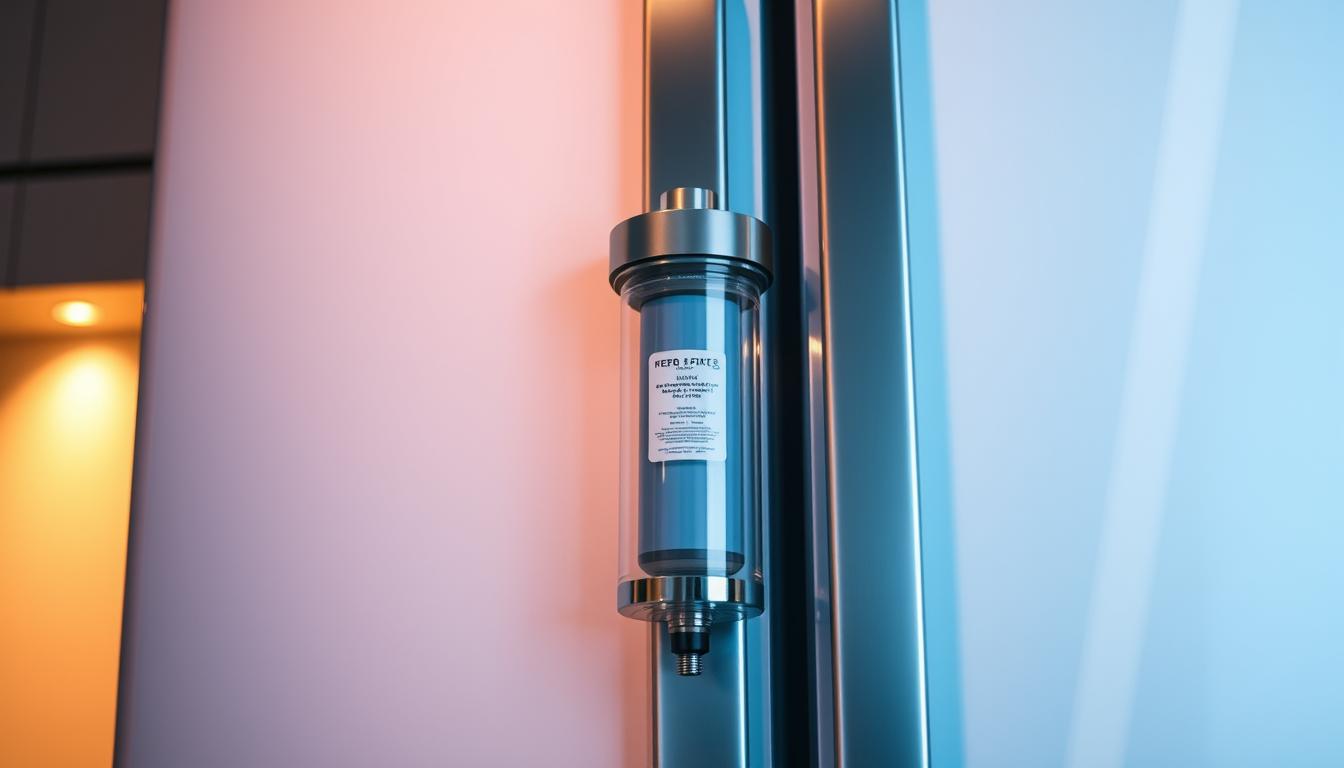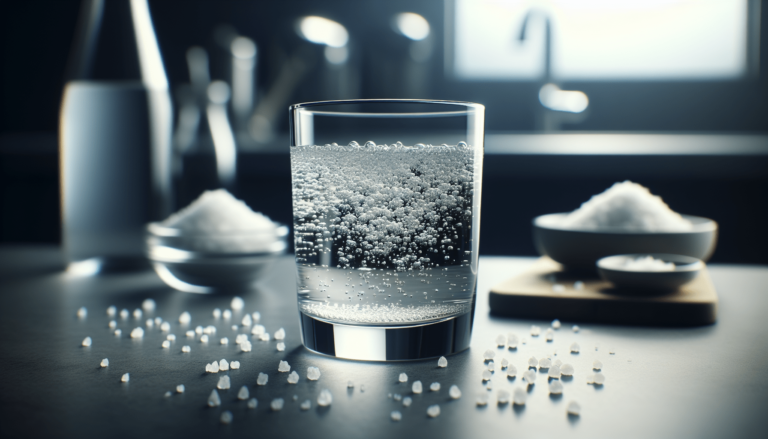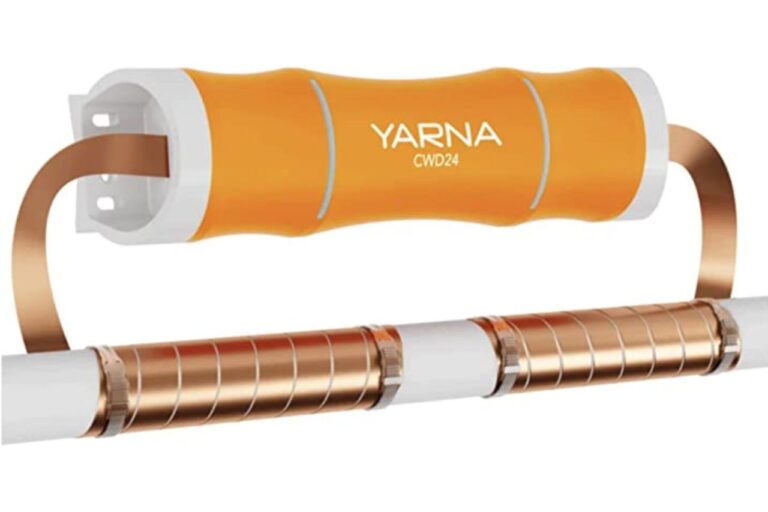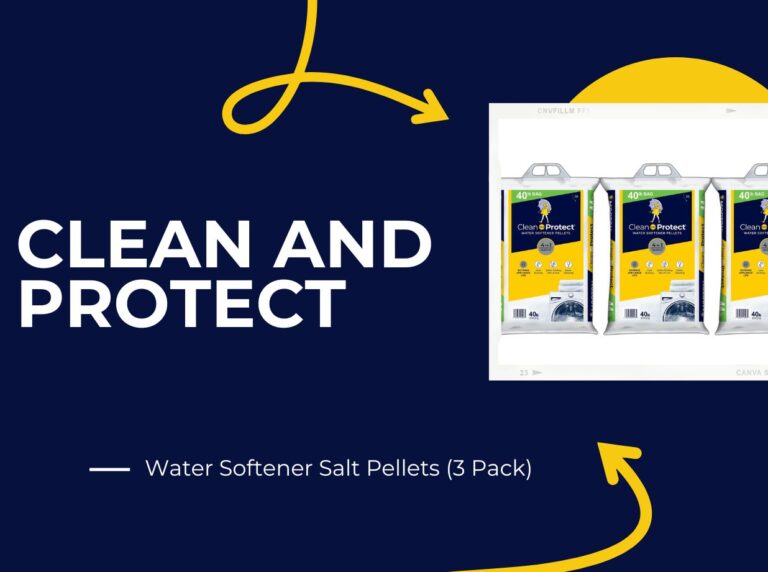Do You Need a Refrigerator Water Filter if You Have a Water Softener?
Many households rely on refrigerators with built-in water filtration systems for clean drinking water. However, for those who already have a water softener installed, the question remains whether a refrigerator water filter is still necessary.
Having both a water softener and a refrigerator water filter can provide comprehensive protection against water impurities. While a water softener removes minerals that cause water to be hard, a refrigerator water filter can remove additional contaminants, such as lead, chlorine, and other impurities.
Key Takeaways
- Water softeners remove minerals that cause water hardness.
- Refrigerator water filters remove additional contaminants like lead and chlorine.
- Using both systems can provide comprehensive water protection.
- The need for a refrigerator water filter depends on your water quality.
- Combining both systems can improve the taste and quality of drinking water.
Understanding Water Softeners: What They Do and Don’t Do
Water softeners play a crucial role in household water treatment, but their capabilities are often misunderstood. These systems are designed to address the issue of hard water, which is caused by high levels of minerals such as calcium and magnesium.
How Water Softeners Work
Water softeners operate through a process known as ion exchange. This involves exchanging the calcium and magnesium ions in the water for sodium or potassium ions, thereby reducing the water’s hardness.
Ion Exchange Process
The ion exchange process is fundamental to how water softeners function. Hard water contains high levels of calcium and magnesium ions. As the water passes through the softener, these ions are attracted to the resin beads, which are typically coated with sodium ions. The calcium and magnesium ions displace the sodium ions, effectively softening the water.
Salt-Based vs. Salt-Free Systems
There are two primary types of water softeners: salt-based and salt-free systems. Salt-based systems use sodium chloride (salt) to regenerate the resin beads, while salt-free systems use alternative technologies such as template-induced crystallization or electromagnetic waves to alter the properties of the minerals in the water.
Types of Contaminants Removed by Water Softeners
Water softeners are primarily designed to remove calcium and magnesium ions, which cause water hardness. However, they may not remove other contaminants such as heavy metals, bacteria, or viruses.
| Contaminant | Removed by Water Softener |
|---|---|
| Calcium | Yes |
| Magnesium | Yes |
| Heavy Metals | No |
| Bacteria/Viruses | No |
Limitations of Water Softeners
While water softeners are effective at removing minerals that cause hard water, they have limitations. They do not remove other contaminants that may be present in the water, such as lead, chlorine, or microbial pathogens. For comprehensive water treatment, additional filtration systems may be necessary.
The Role of Refrigerator Water Filters in Home Water Filtration
Refrigerator water filters are designed to remove a wide range of contaminants from drinking water, enhancing its quality. These filters are typically installed within the refrigerator and work in conjunction with the ice maker and water dispenser.
How Refrigerator Filters Function
Refrigerator filters usually employ a multi-stage filtration process. The first stage often involves a mechanical filter that removes larger particles, while subsequent stages may include activated carbon or other technologies to target specific contaminants.
Common Contaminants Targeted by Refrigerator Filters
These filters are effective against various contaminants, including chlorine, lead, and particulate matter. Chlorine and chloramine reduction is particularly important as these chemicals can impart unpleasant tastes and odors to water.
Chlorine and Chloramine Reduction
Activated carbon, a common component of refrigerator filters, is highly effective in reducing chlorine and chloramines, thus improving the taste and odor of water.
Particulate Filtration Capabilities
Refrigerator filters also capture particulate matter, including sediment and other small particles that can be present in tap water.
Typical Lifespan and Effectiveness
The lifespan of a refrigerator water filter varies depending on usage and filter type, typically lasting between 6 to 12 months. Regular replacement ensures optimal performance.
| Filter Type | Lifespan | Effectiveness |
|---|---|---|
| Activated Carbon | 6 months | High |
| Mechanical | 3 months | Medium |
| Multi-Stage | 12 months | Very High |
Do You Need a Refrigerator Water Filter if You Have a Water Softener?
When considering water treatment options, homeowners often wonder if a refrigerator water filter is necessary when they already have a water softener installed. The answer depends on several factors, including the quality of your water supply and your specific needs.
Complementary Functions vs. Redundancy
Water softeners and refrigerator water filters serve different purposes. Water softeners are designed to remove minerals that cause water hardness, such as calcium and magnesium, through a process known as ion exchange. On the other hand, refrigerator water filters are typically designed to remove a broader range of contaminants, including chlorine, lead, and certain bacteria.
What Water Softeners Miss That Filters Catch
While water softeners are effective at removing minerals that cause scaling, they do not remove other contaminants that can affect the taste, odor, and safety of your drinking water. Refrigerator water filters can capture these additional contaminants, providing a second layer of protection for your drinking water.
Scenarios Where Both Systems Are Beneficial
Having both a water softener and a refrigerator water filter can be particularly beneficial in certain scenarios.
City Water Considerations
For homeowners using city water, a refrigerator water filter can provide additional protection against contaminants that may be present in the water supply, such as chlorine and lead.
Well Water Scenarios
For those using well water, the presence of bacteria, viruses, and other microorganisms can be a concern. A refrigerator water filter can help remove these contaminants, making your drinking water safer.
| Water Treatment System | Primary Function | Contaminants Removed |
|---|---|---|
| Water Softener | Removes minerals causing water hardness | Calcium, Magnesium |
| Refrigerator Water Filter | Removes broader range of contaminants | Chlorine, Lead, Bacteria |
In conclusion, having both a water softener and a refrigerator water filter can provide comprehensive protection for your drinking water, addressing both hardness and other contaminants.
Water Quality Considerations: Beyond Hardness
While water softeners address hardness, other contaminants may still be present in your water. It’s essential to consider these factors to ensure your water is not only soft but also clean and safe to drink.
Common Water Contaminants in US Households
US households often face issues with contaminants such as lead, chlorine, and bacteria in their water supply. These contaminants can affect the taste, odor, and safety of your drinking water. For instance, lead can enter the water supply through corroded pipes, while chlorine is commonly used as a disinfectant but can impart an unpleasant taste and odor.
Regional Water Quality Variations
Water quality can vary significantly across different regions due to various environmental and infrastructural factors. For example, areas with agricultural runoff may have higher levels of nitrates, while regions with older infrastructure may have higher levels of lead.
Testing Your Water to Make an Informed Decision
To understand your water quality, testing is crucial. There are two primary methods: DIY testing kits and professional water analysis.
DIY Testing Options
DIY testing kits are readily available and can provide a basic understanding of your water quality. They can test for common contaminants like lead and chlorine.
Professional Water Analysis
For a more comprehensive analysis, hiring a professional is recommended. They can test for a wide range of contaminants and provide detailed reports on your water quality.
Health Benefits of Using Both Systems
Using both a water softener and a refrigerator water filter provides comprehensive protection against various water contaminants, ensuring cleaner and healthier drinking water for your family.
Potential Health Impacts of Unfiltered Softened Water
While water softeners remove minerals that cause water hardness, they don’t eliminate other contaminants like chlorine, lead, or certain bacteria. Consuming unfiltered softened water may still expose you to these potential health risks. Unfiltered softened water can contain residual contaminants that may affect your health over time.
Added Protection for Vulnerable Family Members
For households with infants, pregnant women, or individuals with compromised immune systems, using both systems is particularly beneficial. Refrigerator water filters can remove additional contaminants that water softeners miss, providing an extra layer of protection for those who need it most.
Addressing Specific Health Concerns
Certain health conditions may require extra precautions with drinking water quality. For instance, individuals with high blood pressure may need to limit their sodium intake, which can be affected by the salt used in water softeners. A refrigerator water filter can help mitigate some of these concerns.
| Health Benefit | Water Softener | Refrigerator Water Filter |
|---|---|---|
| Removes Hardness Minerals | Yes | No |
| Removes Chlorine, Lead, Bacteria | No | Yes |
| Reduces Sodium Intake Concerns | No | Yes |
Taste and Odor Improvements: What Each System Contributes
Improving the taste and odor of drinking water is a crucial aspect of household water treatment. Both water softeners and refrigerator filters play significant roles in this process, but they work in different ways to achieve the desired outcome.
How Water Softeners Affect Taste
Water softeners primarily remove minerals that cause water hardness, such as calcium and magnesium. While their main function isn’t to improve taste or odor directly, softening water can indirectly affect its taste. For instance, hard water can have a bitter or metallic taste due to the presence of these minerals. By removing them, water softeners can make water taste smoother and more palatable.
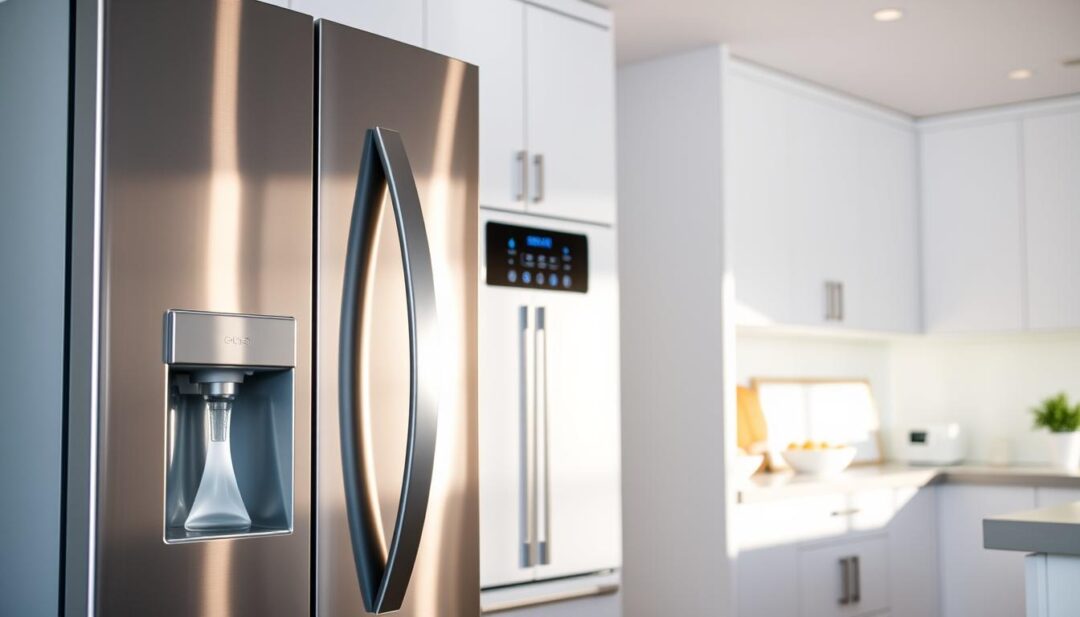
The Role of Refrigerator Filters in Improving Palatability
Refrigerator filters, on the other hand, are designed to remove contaminants that can affect the taste and odor of drinking water. These filters typically use activated carbon, which is effective at capturing chlorine, lead, and volatile organic compounds (VOCs) that can give water an unpleasant taste or smell. By removing these impurities, refrigerator filters can significantly improve the palatability of drinking water.
Combining Systems for Optimal Drinking Experience
When used together, water softeners and refrigerator filters can provide a comprehensive solution for improving the taste and odor of drinking water. While water softeners address the issue of water hardness, refrigerator filters tackle other taste and odor-affecting contaminants. This combination ensures that drinking water is not only soft but also clean and fresh-tasting.
Cost Analysis: Investment vs. Benefits
When considering the installation of both a water softener and a refrigerator water filter, it’s crucial to weigh the initial investment against the long-term benefits. The total cost of ownership includes not just the upfront costs but also ongoing maintenance expenses.
Initial Setup Costs
The initial setup cost for a water softener can range from $500 to $2,000, depending on the type and capacity. Refrigerator water filters, on the other hand, are generally less expensive, with costs ranging from $20 to $100, depending on the brand and quality.
Ongoing Maintenance Expenses
Maintenance costs for water softeners include salt and electricity expenses. The cost of salt can vary depending on the type and quantity used, while electricity costs are generally minimal.
Filter Replacement Costs
Refrigerator water filters need to be replaced every 6 to 12 months, with costs ranging from $20 to $50 per filter.
Salt and Electricity Expenses
For water softeners, the annual cost of salt can range from $50 to $100, while electricity costs are typically less than $20 per year.
Long-term Financial Considerations
While the initial and maintenance costs are significant, the long-term benefits of using both systems can lead to cost savings. For instance, softened water can extend the life of appliances, potentially saving hundreds of dollars in repair and replacement costs.
Maintenance Requirements for Dual Systems
Regular maintenance is the backbone of an effective water treatment system, encompassing both water softeners and refrigerator filters. To ensure that your dual system operates at its best, understanding and adhering to a maintenance schedule is crucial.
Water Softener Maintenance Schedule
Water softeners require regular maintenance to remove the buildup of minerals and debris. Typically, this involves checking and replenishing salt levels, cleaning the brine tank, and occasionally sanitizing the system.
- Check salt levels monthly and replenish as needed.
- Clean the brine tank every 3-6 months to prevent buildup.
- Sanitize the system annually to prevent bacterial growth.
Neglecting these tasks can lead to reduced efficiency and potentially cause the water softener to malfunction.
Refrigerator Filter Replacement Guidelines
Refrigerator filters have a limited lifespan and need to be replaced regularly to maintain water quality. Most manufacturers recommend replacing the filter every 6 months or after filtering a certain volume of water.
“Replacing your refrigerator filter regularly is crucial for maintaining the quality and taste of your drinking water.”
To simplify this process, many modern refrigerators come equipped with filter replacement indicators.
Simplifying Your Maintenance Routine
To ensure that maintenance doesn’t become a chore, setting up reminders and schedules can be incredibly helpful.
Setting Up Reminders and Schedules
Using a calendar or a maintenance app, schedule reminders for checking your water softener’s salt levels, cleaning the brine tank, and replacing your refrigerator filter.
| Maintenance Task | Frequency |
|---|---|
| Check Salt Levels | Monthly |
| Clean Brine Tank | Every 3-6 Months |
| Replace Refrigerator Filter | Every 6 Months |
By following this maintenance schedule, you can ensure that your dual system continues to provide you with clean, soft water for years to come.
Environmental Considerations of Water Filtration Choices
Water filtration choices have a broader impact on the environment than just providing clean drinking water. As households increasingly adopt water softeners and refrigerator filters, it’s essential to consider their ecological footprint.
Waste Generated by Filter Replacements
One of the significant environmental concerns is the waste generated by frequent filter replacements. Millions of filters are discarded annually, contributing to landfill waste. To mitigate this, some manufacturers are exploring recyclable filter options.
Salt Usage in Water Softeners
Water softeners use salt to remove minerals, but excessive salt usage can harm aquatic ecosystems. The impact of salt discharge on local water quality is a growing concern.
Eco-Friendly Alternatives and Considerations
Consumers are seeking eco-friendly alternatives, such as potassium chloride instead of salt, and filters with longer lifespans.
Recyclable Filter Options
and
Potassium Chloride as a Salt Alternative

Alternative Solutions for Comprehensive Water Filtration
Comprehensive water filtration can be achieved through various alternative solutions, offering homeowners more choices beyond traditional systems. While refrigerator water filters and water softeners are common, other options provide more extensive water treatment capabilities.
Whole-House Filtration Systems
Whole-house filtration systems are designed to filter all the water in your home, not just drinking water. These systems can remove a wide range of contaminants, including chlorine, lead, and volatile organic compounds (VOCs). They offer a comprehensive solution for households seeking to improve overall water quality.
Under-Sink Filters vs. Refrigerator Filters
Under-sink filters and refrigerator filters serve similar purposes but have different installation and maintenance requirements. Under-sink filters are typically more comprehensive and can remove a broader range of contaminants. They are often considered a more robust solution for drinking water filtration.
Customizing Your Water Treatment Approach
Customizing your water treatment approach involves assessing your specific needs and combining different filtration methods. This can include using both a whole-house system and under-sink filters for optimal results.
Layered Filtration Strategies
A layered filtration strategy involves using multiple filtration methods in sequence. For example, a whole-house filter can remove larger contaminants, while an under-sink filter can provide additional polishing for drinking water. This approach can offer enhanced protection against a wide range of contaminants.
Budget-Friendly Combinations
When budget is a concern, homeowners can consider combining cost-effective filtration solutions. For instance, pairing a whole-house filter with a refrigerator filter can provide comprehensive coverage without breaking the bank. It’s essential to weigh the costs and benefits of different combinations to find the most suitable solution.
By exploring alternative solutions and customizing your approach, you can achieve comprehensive water filtration that meets your household’s specific needs.
Making the Right Decision for Your Household
Making the right choice for your household’s water filtration needs involves a thorough assessment of your situation.
Assessing Your Specific Water Quality Needs
To determine the best water treatment solution, you need to understand your water quality. Consider testing your water to identify contaminants and their levels.
Budget Considerations
Evaluate the costs associated with different water filtration systems, including initial setup costs, maintenance expenses, and replacement parts.
Family Health Priorities
Consider the health needs of your family members, especially if you have vulnerable individuals such as the elderly, pregnant women, or young children.
Creating a Decision Matrix
To simplify your decision-making process, create a table weighing the factors mentioned above.
| Factor | Water Softener | Refrigerator Filter |
|---|---|---|
| Initial Cost | $500-$1000 | $20-$50 |
| Maintenance Cost | $100-$300/year | $20-$50/year |
| Health Benefits | Reduces scale buildup | Removes contaminants |
By carefully evaluating these factors and creating a decision matrix, you can make an informed decision that meets your household’s specific needs.
Conclusion: Balancing Water Quality, Convenience, and Cost
Balancing water quality, convenience, and cost is crucial when deciding on a water filtration system. Having a water softener and a refrigerator water filter can provide comprehensive protection for your drinking water. While a water softener removes minerals that cause hardness, a refrigerator filter can remove other contaminants, improving the taste and quality of your drinking water.
When making a decision, consider your specific water quality needs, budget, and family health priorities. Assessing these factors will help you determine whether you need both systems or if one is sufficient. Additionally, consider the maintenance requirements and environmental impact of your chosen system to ensure it aligns with your values and priorities.
By weighing these factors and understanding the complementary functions of water softeners and refrigerator filters, you can make an informed decision that balances water quality, convenience, and cost, ultimately providing safe and great-tasting drinking water for you and your family.

